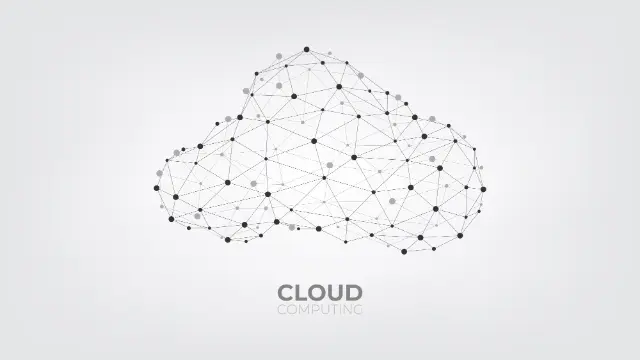Invoice Processing Automation: Empowering the Supply Chain with Intelligence
Invoice processing is a critical but often time-consuming and error-prone task in the supply chain industry. Invoice Processing Automation leverages Python, AI, and cloud-based solutions to streamline this process, bringing unparalleled efficiency and accuracy to your operations.
By automating invoice processing, you can eliminate manual errors, reduce processing time, and improve compliance. This frees up your team to focus on more strategic initiatives that drive growth and innovation.
Python’s robust capabilities make it an ideal language for automating invoice processing. Its flexibility and extensibility allow you to tailor solutions to your specific needs, integrating seamlessly with existing systems and applications.
AI plays a crucial role in extracting data from invoices, matching them with purchase orders, and identifying discrepancies. This automates complex tasks, ensuring accuracy and consistency throughout the process.
Cloud-based solutions provide scalability, security, and accessibility, enabling you to process invoices from anywhere, anytime. The centralized platform streamlines collaboration and provides real-time visibility into your invoice processing operations.

Python, AI, and the Cloud: A Trifecta for Invoice Processing Automation
Python plays a pivotal role in developing both unattended and attended bots for invoice processing automation:
Unattended Bots:
Python’s robust capabilities make it ideal for creating unattended bots that can automate the entire invoice processing workflow, from receiving invoices to validating details, matching with purchase orders, and initiating payments. These bots work autonomously, eliminating the need for manual intervention.
Attended Bots:
Python also excels in building attended bots that assist human workers with invoice processing tasks. These bots can extract data from invoices, verify information against databases, and flag discrepancies. They augment human capabilities, improving accuracy and efficiency.
Cloud Platforms:
Cloud platforms offer a comprehensive suite of features and capabilities that far surpass traditional RPA/workflow tools orchestrators:
- Scalability: Cloud platforms can seamlessly scale to handle fluctuating invoice volumes, ensuring uninterrupted processing.
- Security: Cloud providers implement robust security measures to protect sensitive invoice data.
- Accessibility: Cloud-based solutions provide anywhere, anytime access to invoice processing operations.
AI’s Role in Enhancing Accuracy:
AI techniques like image recognition, natural language processing (NLP), and generative AI (Gen AI) significantly improve the accuracy of invoice processing automation:
- Image recognition can extract data from scanned invoices, even if they’re poorly formatted or handwritten.
- NLP can interpret unstructured text, such as invoice descriptions and notes, to identify key information.
- Gen AI can learn from historical data to identify and handle complex edge cases, ensuring consistent and reliable processing.
By leveraging Python, AI, and cloud platforms, you can create a sophisticated and highly effective invoice processing automation system that streamlines operations, improves accuracy, and drives efficiency throughout your supply chain.

Building the Invoice Processing Automation with Python and the Cloud
Sub-Process Automation
1. Receiving Invoices:
- Use cloud-based storage services to receive invoices electronically.
- Python scripts can monitor designated folders or email accounts for new invoices.
2. Validating Invoice Details:
- Extract data from invoices using Python’s OCR and NLP libraries.
- Validate data against purchase orders and receiving records stored in a cloud database.
- Flag any discrepancies for manual review.
3. Matching Invoices with Purchase Orders and Delivery Receipts:
- Use AI algorithms to match invoices with corresponding purchase orders and delivery receipts based on unique identifiers or data patterns.
- Automate the approval process for matched invoices.
4. Approving Invoices for Payment:
- Implement a workflow system in the cloud to route invoices for approval.
- Python scripts can automatically send notifications to approvers and track approval status.
5. Initiating Payment Processing:
- Integrate with cloud-based payment gateways to initiate electronic funds transfer or check issuance.
- Python scripts can generate payment instructions and send them to the payment gateway securely.
Data Security and Compliance
- Cloud platforms provide robust security measures to protect sensitive invoice data.
- Python scripts can implement encryption and access controls to ensure data confidentiality.
- The automation process can be designed to comply with industry regulations and standards.
Python vs. No-Code RPA/Workflow Tools
Advantages of Python:
- Flexibility: Python allows for customization and tailoring to specific business needs.
- Extensibility: Python can integrate with a wide range of cloud services and third-party applications.
- Cost-effective: Python is open-source and has a large community of developers.
Limitations of No-Code RPA/Workflow Tools:
- Limited customization: Pre-built tools may not offer the flexibility to handle complex or unique business processes.
- Vendor lock-in: No-code tools often require proprietary software or platforms, limiting scalability and integration options.
- Performance bottlenecks: No-code tools may struggle with high-volume or complex automation tasks.
Algorythum’s Approach
Algorythum takes a Python-based approach to invoice processing automation because we understand the limitations of off-the-shelf RPA/workflow tools. Our custom Python solutions provide:
- Tailor-made solutions: We design automations that perfectly align with your specific business requirements.
- Seamless integration: Our solutions integrate seamlessly with your existing systems and applications.
- Scalability and performance: Python’s robust capabilities ensure efficient and reliable automation, even for high-volume processing.

The Future of Invoice Processing Automation
The future of invoice processing automation is bright, with emerging technologies offering exciting possibilities to further enhance the proposed solution:
- Blockchain Integration: Blockchain technology can provide immutable and secure storage for invoices and related documents, ensuring transparency and preventing fraud.
- Machine Learning: Advanced machine learning algorithms can improve data extraction accuracy, identify patterns, and predict payment trends.
- Robotic Process Automation (RPA): RPA bots can automate repetitive tasks within the invoice processing workflow, such as data entry and document retrieval.
By leveraging these future technologies, businesses can create a truly end-to-end Invoice Processing Automation system that is highly efficient, accurate, and secure.
Stay Connected for More Automation Insights
Subscribe to our newsletter to stay up-to-date on the latest industry-specific automation trends and best practices.
Contact Us for a Free Feasibility and Cost Estimate
If you’re interested in implementing Invoice Processing Automation in your organization, contact our team today. We offer a free feasibility assessment and cost estimate to help you determine the best solution for your unique requirements.

Algorythum – Your Partner in Automations and Beyond
At Algorythum, we specialize in crafting custom RPA solutions with Python, specifically tailored to your industry. We break free from the limitations of off-the-shelf tools, offering:
- A team of Automation & DevSecOps Experts: Deeply experienced in building scalable and efficient automation solutions for various businesses in all industries.
- Reduced Automation Maintenance Costs: Our code is clear, maintainable, and minimizes future upkeep expenses (up to 90% reduction compared to platforms).
- Future-Proof Solutions: You own the code, ensuring flexibility and adaptability as your processes and regulations evolve.









